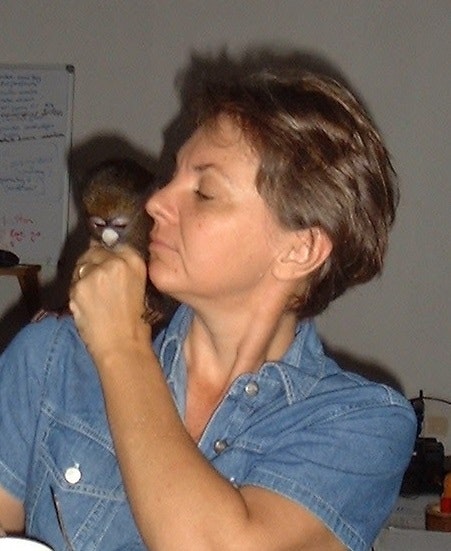Conserving endangered primate communities in Cross River State, Nigeria

Less than 10% of Nigeria’s rain forests remain, and more than half of what is left is found in Cross River State. Over 60% of the country’s endangered plant and animal species can be found here, making it Nigeria’s most biodiverse area. The Cross River forest is also classified as the only evergreen rainforest in Africa. It is home to over 1,000 species of birds and amphibians and has more butterflies than anywhere else on the continent.
Zena Tooze, a British/Canadian biologist, has lived and worked in Cross River State for the last fifteen years. Nigeria is a very challenging place to practice conservation, but Zena has worked hard to achieve full integration with the local people and establish a strong local team under the NGO ‘CERCOPAN’. The team works to protect over 3,400 hectares of community managed tropical rain forest, at the heart of which is the important Cross River National Park (established 1991). CERCOPAN focuses on re-establishing primate communities in the area through ground breaking science-based rehabilitation, reintroduction and behavioural studies of four species: red-eared guenons, putty nose guenons, mona guenons and red capped mangabeys. All of these species are in severe decline due to decades of over-hunting for the bush meat trade. The primates act as ambassadors for their threatened habitat, helping engage local people on the importance of the National Park’s rain forest and areas beyond its boundaries.The new centre will provide opportunities for Nigerian secondary, undergraduate and post graduate students to learn about tropical conservation and endangered primates in a rainforest environment

With support from an Associate Award, Zena and her team are developing a new Research and Education Centre near Iko Esai (Cercopan’s host community), the first of its kind in Nigeria. As well as providing much-needed specialist training for the team, primate research staff, and national conservation posts, the centre will have a library and computer access to engage young people in interactive education. Zena hopes that by developing the research base into a centre that can take both Nigerian students from secondary school level to PhD, and overseas students for training and development, CERCOPAN can become a self-sustaining organisation over time. Beyond the centre, awareness programmes for villagers living around the National Park are leading to management plans that are helping local people to use their community resources sustainably. Zena is working to extend the influence of CERCOPAN, with her ultimate goal – full local leadership of the project – enabling her to step back from the project as a trustee.




